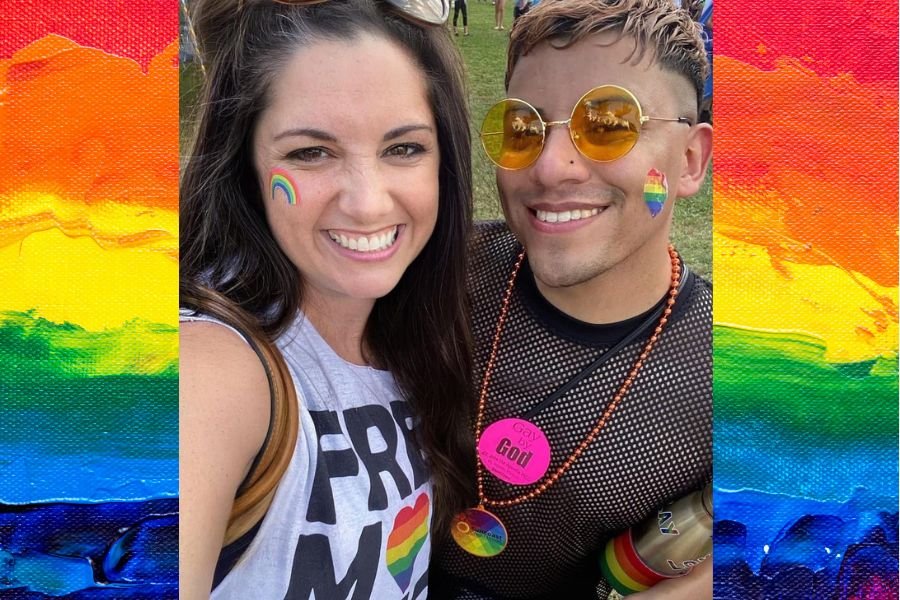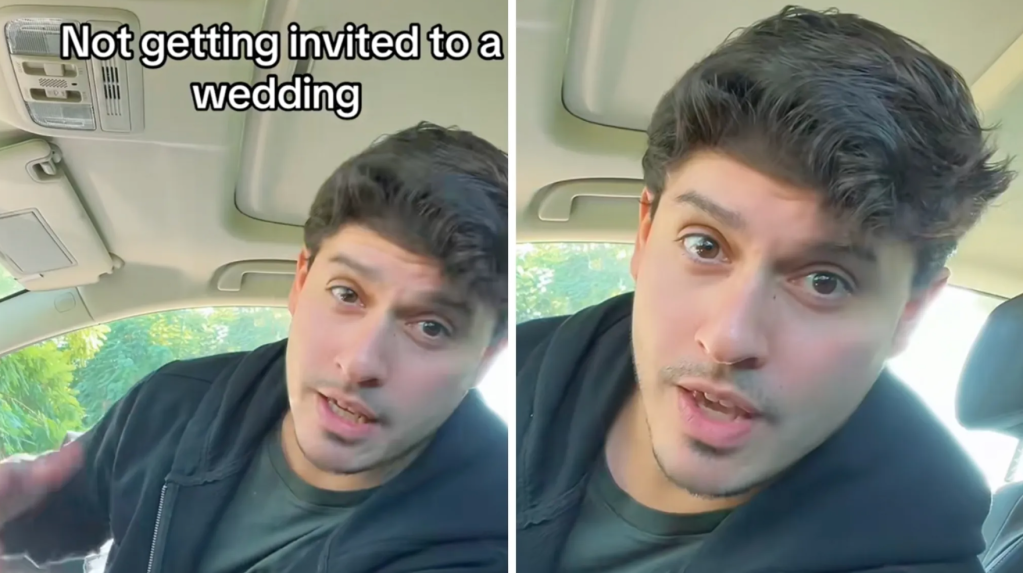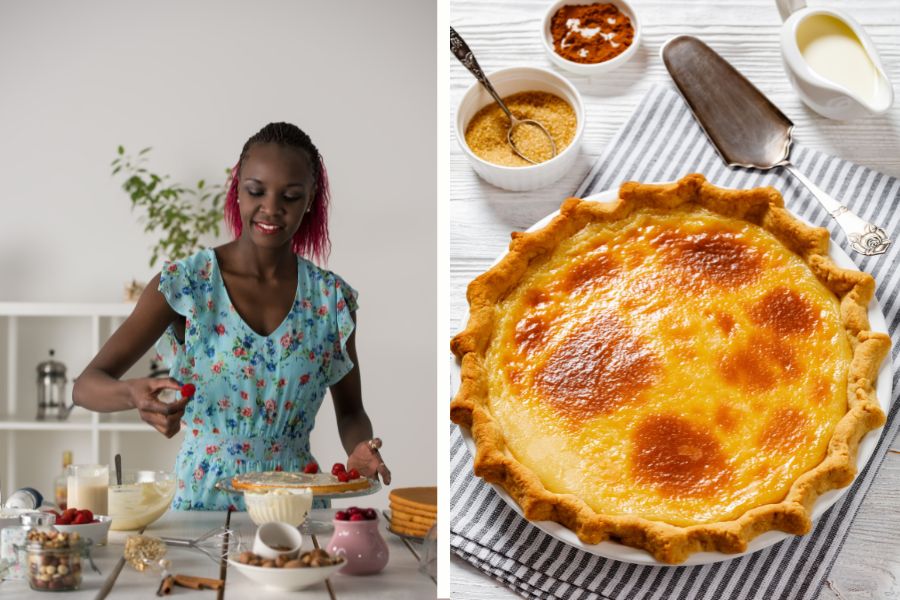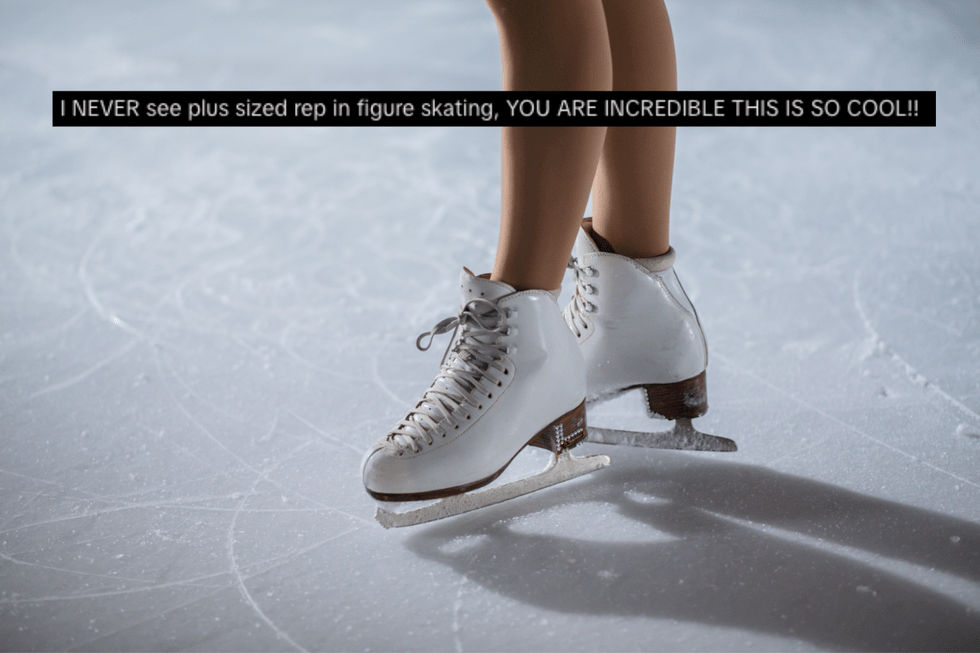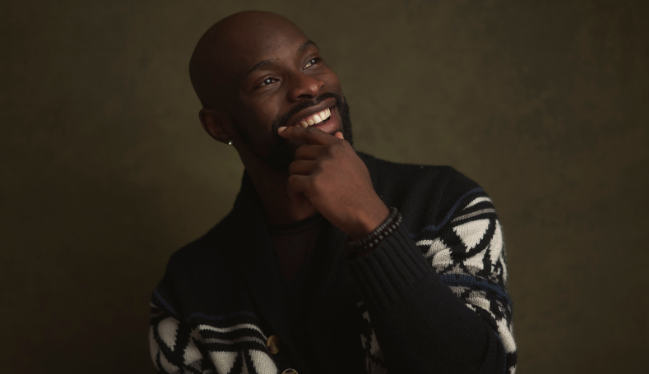This post was originally published on Substack. You can find it here.
I was a small town, conservative girl when my husband and I relocated to Orlando, Florida. I spent my time going from work to the barn, work to the barn, crying as I brushed my horse’s mane.
“I’ll never make friends in this town,” I sobbed over the phone with my mom one night.
The next day at work, I met Matt.
He had a brilliant smile and a southern drawl and he sounded like home. He loved horses, too, having spent years doing rodeo. Our friendship was instant and easy.
He visited the barn and taught me how to lasso. I picked up his favorite latte on the way to work. And on our lunch breaks, he would gush all about the love of his life, Jesse. I assumed Jesse was a girl, but that assumption turned out to be wrong. When we all met for lunch one day, I couldn’t conceal my shock.
“Oh my GOSH, Matt! You’re gay?”
“Um, DUH.” He laughed. “Did the cowboy hat throw you off?”
I then remembered he had recently pointed out a bar a few blocks from my house. He mentioned that it was a fun place to go, and I replied that one day we should….but I hadn’t noticed the rainbow details.
“MK, your gay-dar isn’t malfunctioning. It’s completely nonexistent.”
Matt and Jesse told me funny stories about drag contests and bouncers who wore shorty shorts. They insisted I would love Thursday night karaokes, but I assured them it wasn’t my scene.
I blushed and giggled a little at the idea. It sounded fun, if not a bit scandalous.
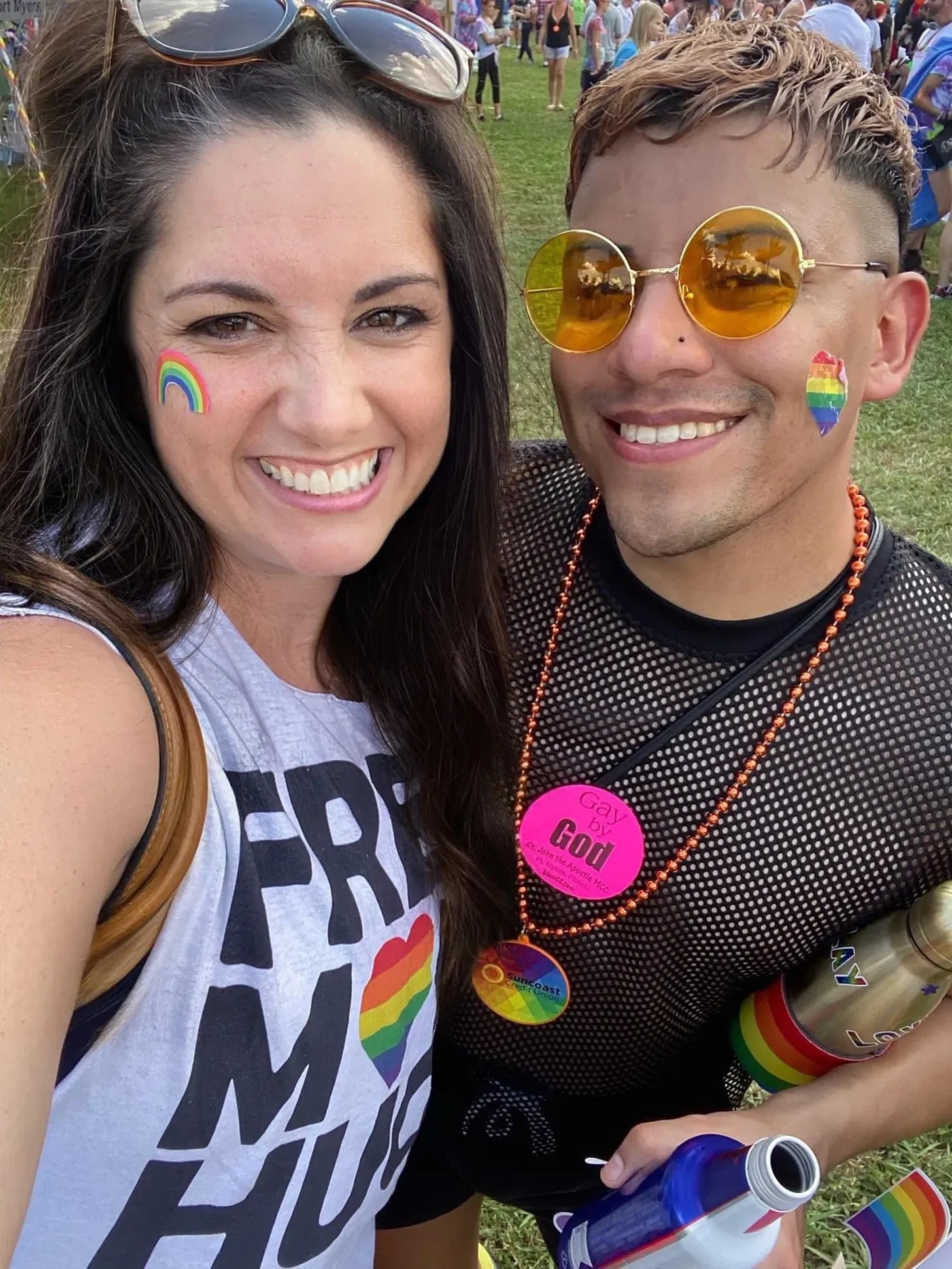
A week or so after that hilarious lunch date, I was driving home from a friend’s house, when I witnessed a young lady get struck by a car. I swerved to the side of the road and jumped out of my vehicle, screaming.
In an instant, people poured out of the bar to assist in the emergency. I barely registered that they were dressed flamboyantly. Their make up didn’t strike me as strange. In that moment, we were all scared human beings. Their hearts were racing just like mine.
A drag queen cradled the woman’s head in his hands as I called the police.
“Don’t move, baby girl,” he comforted the woman. “Don’t mess up these pretty braids.”
It was a fraction of a moment that felt like forever. I can still hear her crying for Momma. Thankfully, the club was a block from the hospital. The ambulance arrived in an instant.
When the lights and sirens finally faded, my adrenaline couldn’t handle silence. It was like every one of us had been shaken like soft drinks, and in that moment, we had all cracked open. There were hugs and prayers exchanged between strangers. I remember someone humming a hymn.
Then slowly, one by one, the crowd dispersed. We had to go back to our lives. But not before exchanging a couple of phone numbers, promising to disperse any updates.
I called my friends, Matt and Jesse. I knew the gay community was a close one and I wondered if they had heard any news.
Matt asked around, but didn’t hear much.
“Don’t worry,” he said. “We will know more tomorrow.”
I decided to stay up until then.
The next morning, we all went to breakfast with the drag queens who had started a text thread for updates. We bonded over hash browns and our collective trauma—and after coffee, just some regular life stories.
The woman, we learned, was in critical condition. Two broken legs and a fractured spine. James, who had cradled her head so gently, had probably saved her life. Turns out, he had done so with great intention because not only was he a drag queen, but once a month he returned to his rural hometown to serve as a medic for the volunteer fire department.
A hero. An absolute gem of a human.
Two years later, those same gentle heroes were working their jobs at Pulse when a hate-crazed terrorist made his way through the doors with a semi-automatic rifle. When he first started shooting, some patrons kept dancing.
They thought it was part of the music.
That detail never fails wreck my heart.
They kept dancing.
They just wanted to dance.
I’ll never forget the pit in my stomach as I stared at my phone through the night. Praying each name in that years-long text thread was sleeping at home in their beds. After four sleepless nights, we received confirmation—two of the group had been working. Both had escaped and survived the massacre.
But it wasn’t a happy ending.
An act of hate forever changed their lives, and they were deeply, irreversibly altered. One turned to drugs and the other disappeared. I pray he is still alive, somewhere.
But, yes. They survived. Thank God, I should say.
In an act of terror that killed 49 and hurt scores more, they were the lucky ones.
But when I think of that word…”lucky”.
God, it honestly pisses me off.
That’s how low the bar is, y’all. That’s where we are as a society.
Our gay friends are sometimes just lucky to survive.
How can this be who we are?
If you talk to the LGBTQ community, and I mean really get to know them, you will hear a whole lot of heart breaking versions of what they consider to be “lucky.”
Their parents didn’t disown them. They are lucky.
They haven’t been physically assaulted. Lucky.
They survived a terrorist attack.
Lucky.
I am so deeply over this shit.
Nobody, nobody should live in fear. Nobody should feel lucky that they’ve avoided physical abuse, or emotional abuse, or my Lord, mass murder.
Six short years after the Pulse shooting, what is it going to take?
Look how broken America is. Look what this hate has cost us.
And look at the religious mouthpieces for hate who are becoming more and more emboldened.
Just last week, I posted a meme celebrating the beginning of Pride. It said:
Wishing all the homophobes a SUPER uncomfortable month!
I post it every year and I usually laugh my butt off. It’s too easy to predict all the comments. It’s the same old crap, different mouths, every year.
“Well, that’s not very Christlike.”
“I don’t hate anyone! I hate the sin, but I don’t hate the sinner.”
“Ohhhhhh, well who is intolerant now?”
This year, I am truly done laughing. I used to abide this shit, but to be honest, I really can’t do it, anymore. I’ve read and I’ve lived through enough horrible history to understand this terrible truth: Polite hate is the most dangerous kind of hate. It loads the gun, then just backs away quietly.
Christians, please, open your eyes. It’s two thousand and freaking twenty four. I know that you know exactly how this works. You don’t get a pass for good manners.
I won’t let you hide behind pat platitudes when your beliefs give motive to terrorists.
You don’t get to say “it’s the sin that I hate” when that mantra makes bullets for terrorists.
And yah, I guess you could call me intolerant. Smack that sticker on my forehead, I don’t care. For years, I have tolerated far too much from the bigoted backrow Baptists. But the paradox of tolerance states that if a society’s practice of tolerance is inclusive of the intolerant…in the end, intolerance will win the day.
And that’s exactly how people die dancing.
So yah, not only do I wish the homophobes reading an incredibly uncomfortable month—I hope this discomfort convicts your soul, and makes you question EVERYTHING. I hope the itch in your spirit spreads to places you can’t bend over to scratch.
I hope enough people walk away from your screeching that you are left alone with your hate. And I hope that hate makes you sick to your stomach when you realize the harm it has caused.
Being gay is not a sin. And Pride is not some party.
It’s a courageous protest that weak minded fearful bigots just can’t comprehend.
It’s authenticity in the face of oppression. Vulnerability in the face of violence.
Pride is the spirit of millions of people who have chosen to dance in the crosshairs.
Growing up in the church, I was frequently told that there are evil forces at work. That these forces were fighting against God’s will, and causing harm to His people. Now, I can see that the threat was true, but it was coming from inside the house.
There are evil, hateful forces at work right now…against the LGBTQ community. Some of those forces look like Saints when they’re hiding behind stained glass.
It’s gonna take a force, equal and opposite in power and passion, to turn the church around. So, if you’re a Christian who has been fence-sitting this issue, it’s time to get off the damn fence.
This June, I beg you to look past the prejudice and the preaching you’ve had crammed down your throat your whole life. Look past your anger, and your pastor’s fear. Look at these beautiful humans. Trying with all their hearts to claim the dignity and love and safety that they, as humans, deserve.
This?
THIS is what you are scared of?
These are the forces of evil?
If that’s what you think then, my friend, you’ve been brainwashed.
I get it. I was brainwashed, too.
But all along, I deep down in my heart, I knew there was something amiss. I couldn’t quite rationalize what I knew of God’s love with the hate I saw coming from church.
For twenty years, I was too afraid to challenge my faith. I thought that it might fall apart.
But that is EXACTLY why I wish all the homophobes a SUPER uncomfortable month. Because I know from painful, hard-earned experience what discomfort can do to change minds.
So, instead of doubling down on your hateful theology…I ask you, non-affirming Christians, in the name of our faith. In the name of God’s love.
Will you please put your weapons down?
Will you consider the lesson that I learned on the street in front of Pulse so many years ago?
Will you feel the heartbeats of your fellow humans, and for once SEE YOURSELF IN THEM?
I beg you to try.
I beg you to grow.
It’s already been far too late.
You can follow Mary Katherine Backstrom on Facebook, Instagram and TikTok.
